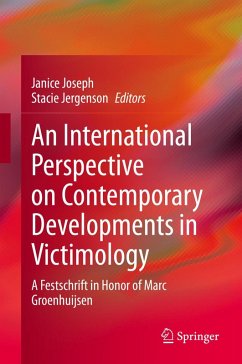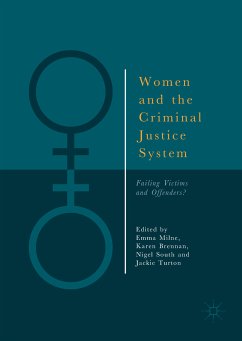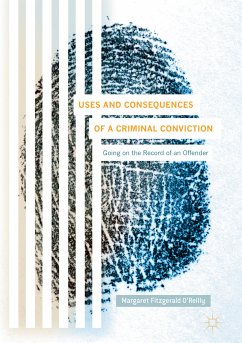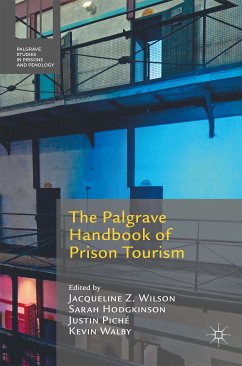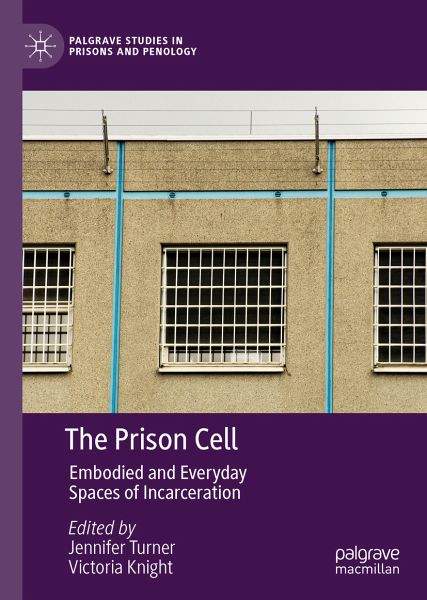
The Prison Cell (eBook, PDF)
Embodied and Everyday Spaces of Incarceration
Redaktion: Turner, Jennifer; Knight, Victoria
Versandkostenfrei!
Sofort per Download lieferbar
104,95 €
inkl. MwSt.
Weitere Ausgaben:

PAYBACK Punkte
52 °P sammeln!
This book advances conceptualisations and empirical understanding of the prison cell. It discusses the complexities of this specific carceral space and addresses its significance in relation to the everyday experiences of incarceration. The collected chapters highlight the array of processes and practices that shape carceral life, adding the cell to a rich area of discussion in penal scholarship, criminology, anthropology, sociology and carceral geography. The chapters highlight key aspects such as penal philosophies, power relationships, sensory and emotional engagements with place to highlig...
This book advances conceptualisations and empirical understanding of the prison cell. It discusses the complexities of this specific carceral space and addresses its significance in relation to the everyday experiences of incarceration. The collected chapters highlight the array of processes and practices that shape carceral life, adding the cell to a rich area of discussion in penal scholarship, criminology, anthropology, sociology and carceral geography. The chapters highlight key aspects such as penal philosophies, power relationships, sensory and emotional engagements with place to highlight the breadth and depth of interdisciplinary perspectives on the prison cell: a contested place of home, labour and leisure. The Prison Cell's empirical attention is global in its consideration, bringing together both contemporary and historical work that focuses upon the cell in the Global North and South including examples from a variety of geographical locations and settings, including police custody, prisons and immigrant detention centres. This book is an important and timely intervention in the growing and topical field of carceral studies. It presents the only standalone collection of essays with a sole focus on the space of the cell.
Dieser Download kann aus rechtlichen Gründen nur mit Rechnungsadresse in A, B, BG, CY, CZ, D, DK, EW, E, FIN, F, GR, HR, H, IRL, I, LT, L, LR, M, NL, PL, P, R, S, SLO, SK ausgeliefert werden.




